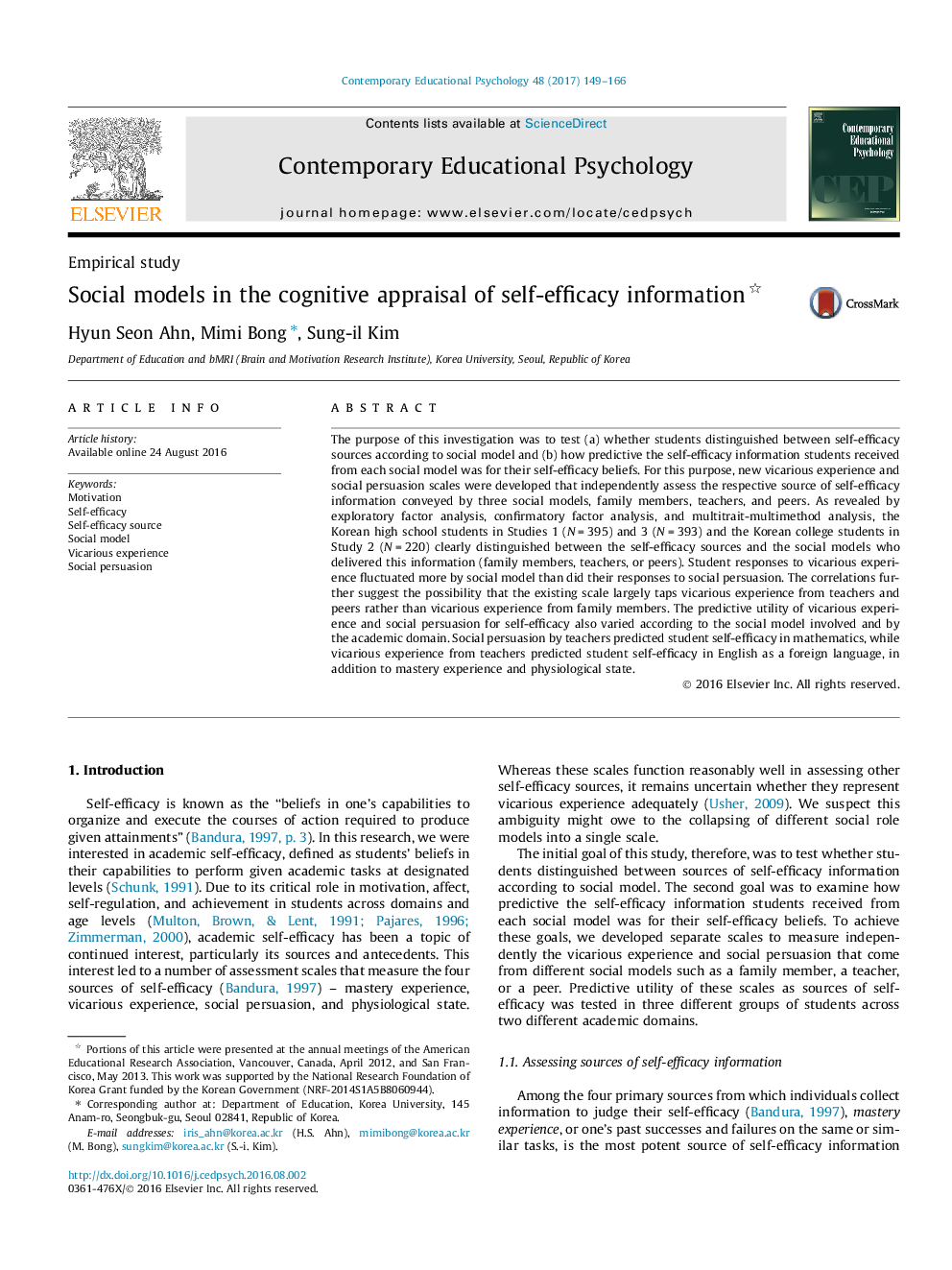| کد مقاله | کد نشریه | سال انتشار | مقاله انگلیسی | نسخه تمام متن |
|---|---|---|---|---|
| 4937929 | 1434671 | 2017 | 18 صفحه PDF | دانلود رایگان |
عنوان انگلیسی مقاله ISI
Social models in the cognitive appraisal of self-efficacy information
ترجمه فارسی عنوان
مدل های اجتماعی در ارزیابی شناختی اطلاعات خودکارآمدی
دانلود مقاله + سفارش ترجمه
دانلود مقاله ISI انگلیسی
رایگان برای ایرانیان
کلمات کلیدی
انگیزه، خود کارآمدی، منبع خودمراقبتی، مدل اجتماعی، تجربه مهاجم، تضمین اجتماعی،
موضوعات مرتبط
علوم انسانی و اجتماعی
روانشناسی
روان شناسی کاربردی
چکیده انگلیسی
The purpose of this investigation was to test (a) whether students distinguished between self-efficacy sources according to social model and (b) how predictive the self-efficacy information students received from each social model was for their self-efficacy beliefs. For this purpose, new vicarious experience and social persuasion scales were developed that independently assess the respective source of self-efficacy information conveyed by three social models, family members, teachers, and peers. As revealed by exploratory factor analysis, confirmatory factor analysis, and multitrait-multimethod analysis, the Korean high school students in Studies 1 (NÂ =Â 395) and 3 (NÂ =Â 393) and the Korean college students in Study 2 (NÂ =Â 220) clearly distinguished between the self-efficacy sources and the social models who delivered this information (family members, teachers, or peers). Student responses to vicarious experience fluctuated more by social model than did their responses to social persuasion. The correlations further suggest the possibility that the existing scale largely taps vicarious experience from teachers and peers rather than vicarious experience from family members. The predictive utility of vicarious experience and social persuasion for self-efficacy also varied according to the social model involved and by the academic domain. Social persuasion by teachers predicted student self-efficacy in mathematics, while vicarious experience from teachers predicted student self-efficacy in English as a foreign language, in addition to mastery experience and physiological state.
ناشر
Database: Elsevier - ScienceDirect (ساینس دایرکت)
Journal: Contemporary Educational Psychology - Volume 48, January 2017, Pages 149-166
Journal: Contemporary Educational Psychology - Volume 48, January 2017, Pages 149-166
نویسندگان
Hyun Seon Ahn, Mimi Bong, Sung-il Kim,
